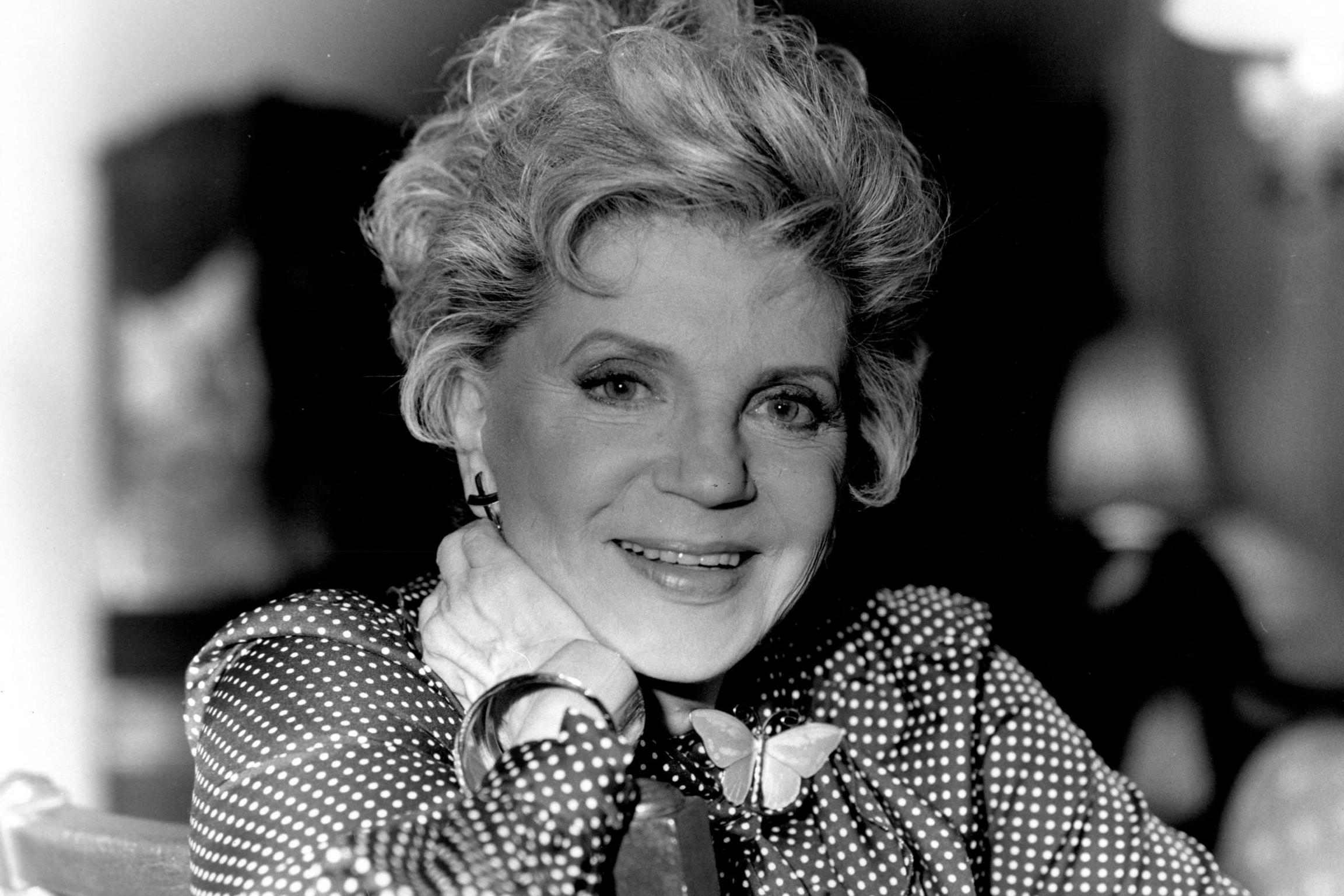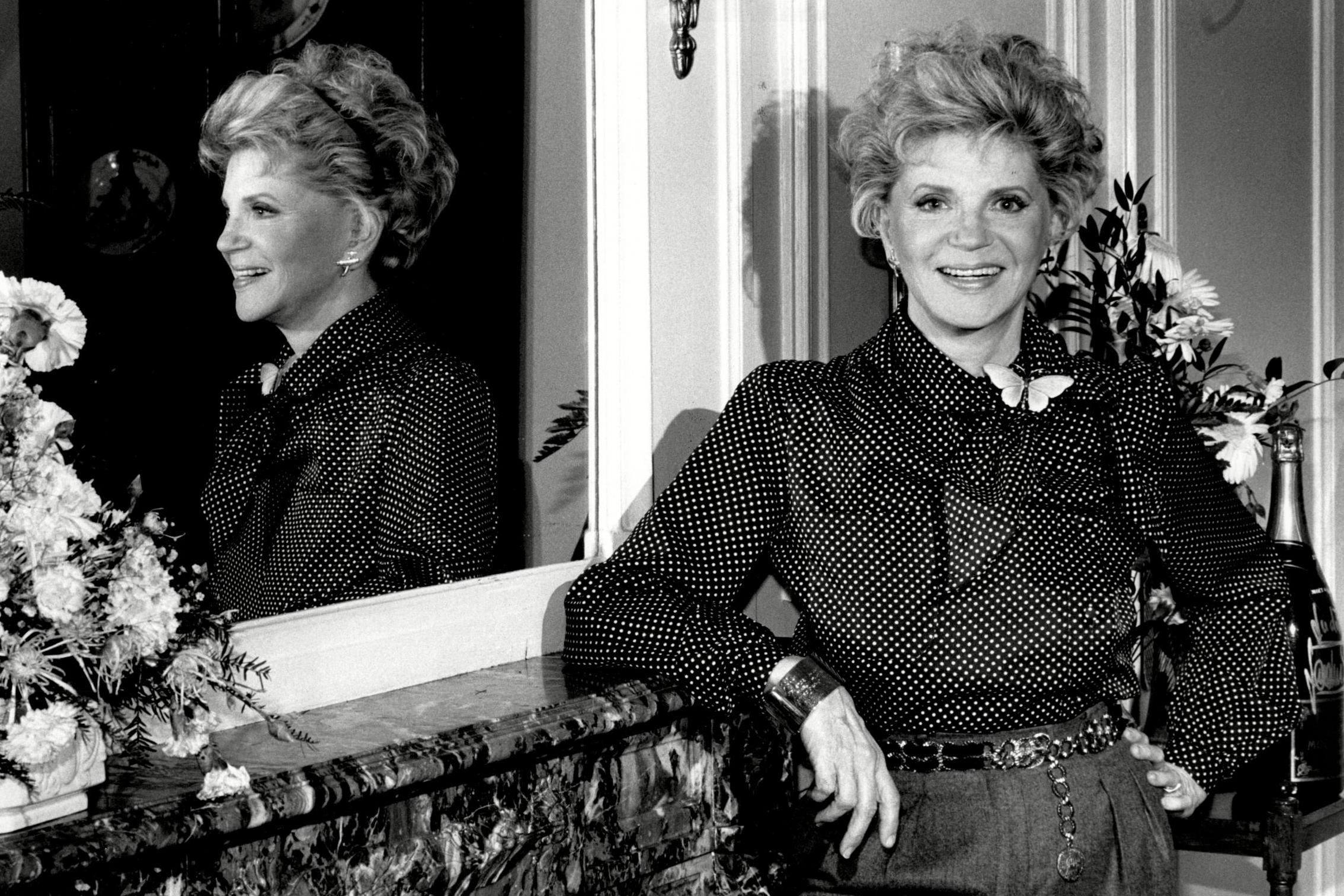Judith Krantz: Bestselling author of racy romance novels
Developing heart-stopping, hot-blooded tales of romance, Krantz’s novels, though derided by critics, found huge favour with the public

Judith Krantz’s steamy, glitzy romance novels about the obscene exploits of the obscenely wealthy were devoured by millions of readers and transformed the former editor of Good Housekeeping into a publishing and television sensation.
Krantz, who has died aged 91, burst onto the literary scene in 1978 with Scruples, a Cinderella tale about the making of a Beverly Hills boutique owner. It sold about 5 million copies in its first two years in print.
Though she was paid a relatively small sum for the book, Krantz would later garner record-breaking advances, earning millions of dollars from her top-selling romances and the TV miniseries made from them. Her novels, 10 in all, sold more than 80 million copies, were translated into more than 50 languages and became fixtures on bestseller lists for decades.
Critics rarely had kind words for Krantz’s books, but she saw them as pure entertainment. “It’s not Dostoevsky,” she said in 1986. “It’s not going to tax your mental capacities. It’s not ahhrtt.”
Krantz spun ornate, breathless tales with only-in-your-dreams endings. Her powerful heroines had showgirl names (Maxi Amberville, Kiki Kavanaugh, Jazz Kilkullen), fabulous wardrobes and beauty so astounding it defied the English language. “Her changeable eyes were an unnameable colour that held in it the bewitchment of a thousand twilights,” she wrote of one character in Mistral’s Daughter (1982).
The books, like those of Jacqueline Susann and Jackie Collins, helped break taboos about women and sex – and about women writing about sex. They were mildly scandalous in a pre-Fifty Shades of Grey world. “They’ve done everything but tattoo a ‘P’ for pornographer on my chest,” Krantz said in 1978. Scruples was rejected by Simon & Schuster, which said the novel – about a woman named Billy Ikehorn who transforms herself from an overweight frump into the svelte, stylish and wealthy proprietor of a Beverly Hills boutique called Scruples – suffered from an excess of characters and plot.
Crown bought the novel for $50,000 and also snapped up an outline of Krantz’s second novel, Princess Daisy, for $400,000. Rights to the paperback edition of that book were sold for $3.2m, then the highest price ever paid for a fiction reprint. Daisy hit No 1 on The New York Times bestseller list a week before its publication date in 1980.
That same year, a TV miniseries based on Scruples came out, with Lindsay Wagner in the starring role. Produced by Krantz’s husband, Steve Krantz, it was the second-highest-rated miniseries of 1980. So began a fruitful family business: Krantz would publish a book roughly every two years, and a couple of years after that her husband would bring it to the small screen. Donald Trump even made a cameo in one production, I’ll Take Manhattan (1987), which was set in Trump Tower.

Krantz was 50 when Scruples was published. The book, she said, was partly the result of empty-nest syndrome. Her sons had recently left for college, and she finally succumbed to the urgings of her husband that she try writing a novel.
For more than 20 years, Krantz had worked as an editor and writer at women’s magazines. Her serious pieces, a profile, for example, about Golda Meir, were overshadowed by her more provocative ones, such as a much-discussed piece on “The Myth of the Multiple Orgasm” for Cosmopolitan (an article the sexually ecstatic characters in her novels seemed to have missed).
Krantz at first balked at the idea of writing a novel, saying she’d been reluctant to try fiction writing after receiving a B in creative writing as a student at Wellesley College. But because facing another anxiety – fear of piloting a small plane her husband had bought – was so liberating, Krantz said she became “overcome by a rage of ambition”.
Critics, when they bothered to notice it at all, were typically dismissive of Krantz’s work. “Sometimes reviewers lament that good trees have been felled to produce a book,” The Washington Post said of her 1990 book Dazzle. “In this case, I even feel bad about the ink and glue.”
In her novels, Krantz was fond of the rags-to-riches theme, but her personal narrative was one of riches-to-more-riches. Judith Tarcher was born in Manhattan, New York, in 1928, and raised in an expansive apartment on Central Park West that featured paintings by Soutine and Renoir. Her father was an advertising executive, and her mother was a civil rights lawyer.
After graduating in 1944 from the exclusive Birch Wathen private school in New York and then from Wellesley in 1948, she set off for Paris before settling into an entry-level job with Good Housekeeping. Soon afterward, Birch Wathen schoolmate Barbara Walters introduced her to Steve Krantz, a TV comedy writer and producer who later produced such films as the X-rated animated feature Fritz the Cat (1972) and Cooley High (1975), which inspired the ABC sitcom What’s Happening!!. The Krantzes married in 1954.
At Good Housekeeping, Krantz wrote a column called “Tips to the Teens” and later became accessories editor, a job that capitalised on her love of handbags, scarves and especially jewellery. (Krantz’s novels often offered a voyeuristic look inside the world of high fashion.) She had stints at McCall’s, Ladies’ Home Journal and Cosmopolitan, where she became a contributing west coast editor after settling in California in 1971.
Krantz immersed herself in high-end fashion trends. She said she had once spent $25,000 a year on clothes, not including fur coats and jewellery. She became a regular at luxury shops like Giorgio, the inspiration for the fictional store in Scruples. Krantz rarely bought clothes off the rack, and the thought of entering a mall turned her sour. Clothes, she admitted, were vital to a woman’s sense of self.
“I write about clothes as magical things that can change you,” she said. “I feel that women are comforted by having clothes and accessories. I have every scarf I’ve ever bought.” Steve Krantz died in 2007. Survivors include two sons and two grandchildren.

That she would be remembered as the “sex and shopping” novelist was a foregone conclusion, Krantz sighed in her 2000 memoir – archly titled Sex and Shopping: Confessions of a Nice Jewish Girl. She even anticipated (wrongly, it turns out) that the label would “unquestionably be in the first line of my obituary”.
She quipped that she was “resigned” to that view of her legacy and not troubled by it. “On balance,” she wrote, “sex and shopping are both excellent things, activities people love to talk about – even do!”
Judith Krantz, author, born 9 January 1928, died 22 June 2019
© Washington Post
Join our commenting forum
Join thought-provoking conversations, follow other Independent readers and see their replies
Comments
Bookmark popover
Removed from bookmarks